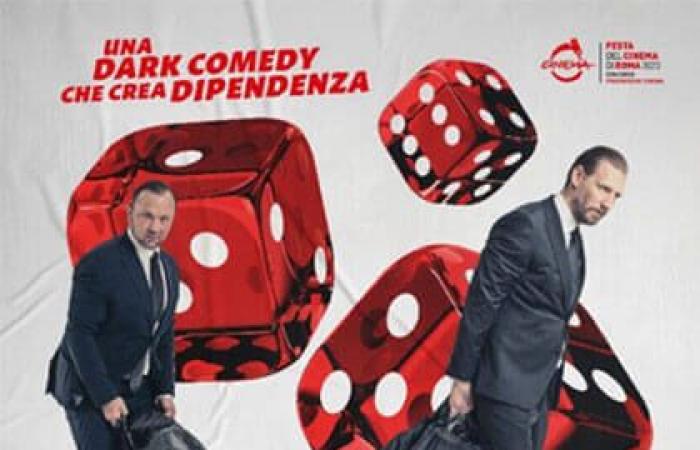Death is a problem of the living It is a 2023 film, directed by Teemu Nikki.
What a magnificent director, Teemu Nikki. The almost fifty-year-old Finn, with a handful of titles, has established himself as one of the few novelties of recent years. He has proposed a different Finland from the one known in cinephile circles, far from Kaurismäki-style authorship, and rewritten according to the genre character. Just look at The blind man who didn’t want to see Titanichis masterpiece so far (on Night n. 226), to verify the deep love towards the genres, including the bisreleased by someone who grew up on worn out VHS tapes and T-shirts fandom – which he still wears -, although distant from Tarantino’s video library and much less ostentatious. His education is within the stories and within the images. As in the sequence of this latest film, in which a character returns home unexpectedly and finds his wife fucking with another man, spotting her from the men’s shoes at the entrance, in a gag worthy of Italian erotica. Death is a problem of the living It’s a black comedy, but it’s not just a black comedy. The film, in theaters from July 4, 2024 con I Wonderfeatures two of Nikki’s fetish actors, Pekka Strang (Restaurant) and Jari Virman (Arto), who have already largely populated this universe; in this sense similar to Kaurismäki in the ability to construct a closed cosmos with its own rules and immediately recognizable, inhabited by the same faces.
Risto is a hearse driver ruined by gambling, broke, a victim of compulsive gambling addiction. Arto, on the other hand, is a man without a brain, literally: after a medical exam he discovers with shock that he has only 15% of the brain matter of other men. Discrimination begins immediately: they burn the earth around him, they make fun of him, they even fire him. It is inevitable that the two start working together: “A man without a heart meets a man without a brain”, summarizes the director. Risto and Arto first recover the bodies that died in the strangest circumstances, they put together the puzzles of the suicides under the train, then they move on to a higher level called Russian roulette. They meet a lady who hires them to hide the bodies that have passed away in the deadly game, which is broadcast live on dark web complete with betting odds. At first the two limit themselves to work, then they decide to participate, since they have nothing to lose; besides, Arto’s “empty pumpkin” could easily shoot himself in the head and stay alive, if he gets a certain angle right to hit the 85% of the skull that doesn’t contain the brain…
Even if the chosen form is the dark comedyprecisely, we are at a sidereal distance from the mere application of a module. What makes the difference is the concept that oversees the action, the conviction, in short the underlying thought. And it is a thought of profound nihilism, a subtle desperation, the idea that if you live a shitty life you might as well shoot yourself in the head for a few euros, it’s all or nothing. As we know, the comedy changes a comma and becomes a tragedy: pay attention to the death of the first girl, unlucky at gambling, with the bullet that goes off and she slowly collapses, in an almost naturalistic way, because that’s how you die. A real death, not a comic one. She was the mother of two children, one points out. The other replies: “No, the dead don’t belong to anyone”. So, this is the atmosphere that spreads, the mood sown with both hands and with a smile. In the end, the film then draws a note of hope, a possible glimmer of light that remains veiled by a heavy cloak of melancholy. There is only one way to face Death and laugh in its face, and therein lies the greatness of Teemu Nikki: to challenge it with such weapons.






